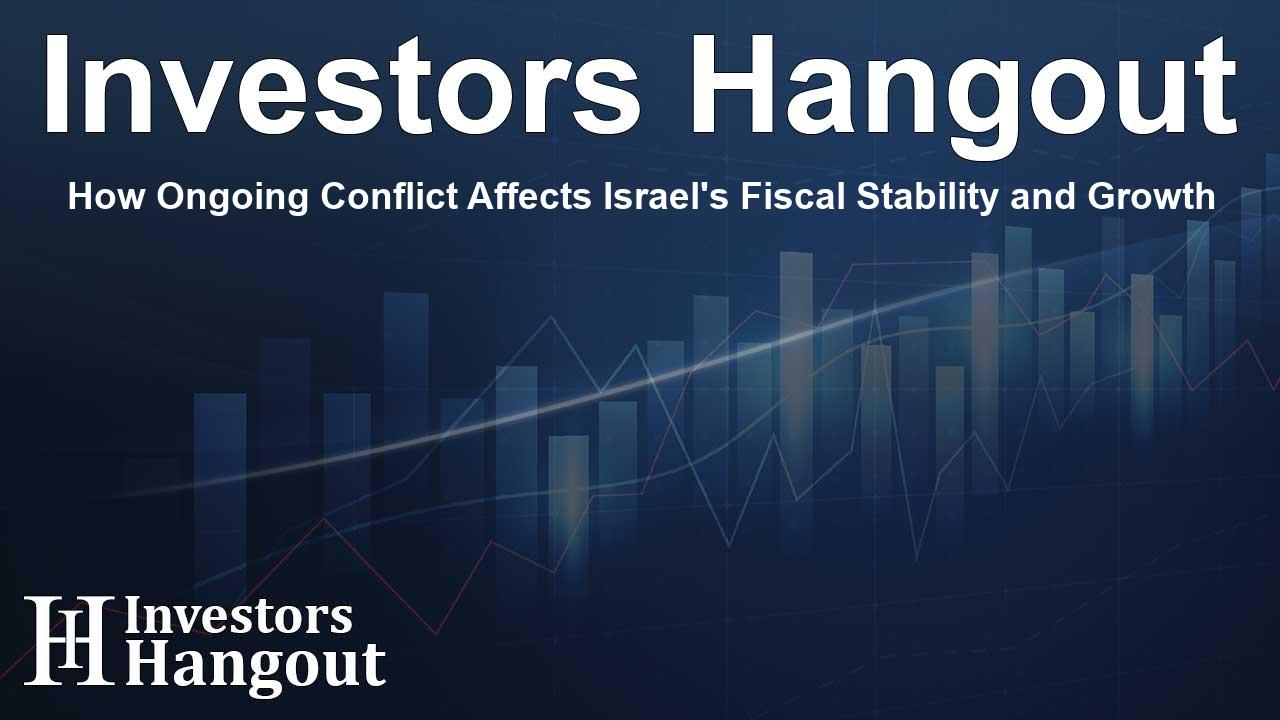How Ongoing Conflict Affects Israel's Fiscal Stability and Growth

Current Economic Challenges in Israel
The ongoing conflict in Israel has had significant implications for its economic landscape. For almost a year, the nation has navigated through turbulence caused by warfare, which is starting to have detrimental effects on its financial health.
Escalating Costs of War
The dire financial repercussions of the conflict are evident, with the Israeli finance ministry estimating the direct costs of the war in Gaza to be around 100 billion shekels (approximately $26.3 billion) as of recent evaluations. Projections indicate that costs could soar to 250 billion shekels by 2025, further compounded by military actions against Hezbollah. This unpredictable situation is leading to a series of credit downgrades that are affecting Israel’s economic stability and causing a spike in debt insurance costs.
Impact on Debt Metrics
Israel's debt-to-GDP ratio, a crucial indicator of economic vigor, was recorded at 67% this year, escalating from 62% last year. Furthermore, the government’s budget deficit has ballooned to 8.3% of GDP, a notable increase from previous expectations of 6.6%. Financial analysts have expressed concerns that a prolonged conflict will only exacerbate these unfavorable metrics and present challenges for fiscal consolidation efforts.
Changing Investment Landscape
Though local buyers such as pension funds have traditionally been robust supporters of Israeli bonds, there is a notable shift in sentiment among foreign investors. As the war continues, interest in Israeli bonds has decreased due to heightened fear over environmental, social, and governance (ESG) concerns. Norges Bank recently liquidated some of its holdings in Israeli government bonds, indicating a growing wariness among international market participants.
Investor Sentiment and ESG Concerns
Concerns regarding Israel’s strategies to conduct the war have raised questions around the ethical implications of bond investments. With Israeli bonds currently trading at significantly wider spreads compared to similar-rated countries, the market demonstrates apprehension surrounding long-term sustainability and fiscal health amidst ongoing conflict.
The Position of Domestic Investors
Interestingly, while foreign investment has dwindled, domestic market participants are increasingly active. Data shows that while the share of bonds held by foreign investors has plummeted significantly, Israeli institutions have ramped up their purchasing. This shift indicates a search for stability within local financial circles amidst global uncertainties.
Venture Capital and Economic Growth
A pressing need for domestic investment has emerged, prompting government initiatives to bolster funding for essential sectors such as technology. The government pledged $160 million to enhance venture capital funding, recognizing that technology is a vital component of its economy, contributing roughly 20% to GDP. However, the effects of displacement and military mobilization continue to strain both agriculture and construction sectors, which are critical to economic recovery.
Looking Ahead
Despite the challenges, Israel’s ability to raise capital remains relatively resilient, having successfully sold around $8 billion in debt on international markets this year. Additionally, the widely-supported diaspora bond vehicle, Israel Bonds, is on a trajectory to achieve a record fundraising goal. However, due to rising borrowing costs and increased expenditures due to the ongoing war, analysts advise the government must exhibit concrete signs of fiscal discipline to restore investor confidence.
Consolidation Efforts Needed
In conclusion, while Israel faces significant financial pressures stemming from the ongoing conflict, there remains a possibility for gradual recovery. Experts believe that maintaining a robust local investor base is key to navigating these turbulent financial waters. However, the call for government consolidation efforts echoes through the investment community, underscoring the urgency of addressing the multifaceted economic challenges ahead.
Frequently Asked Questions
What are the current projections for Israel’s war costs?
The Israeli finance ministry estimates direct war costs could reach 250 billion shekels by the end of 2025, rising from 100 billion shekels.
How has the conflict affected Israel's credit ratings?
The ongoing conflict has led to credit ratings downgrades, increasing borrowing costs and financial pressure on the government.
What feedback do foreign investors have regarding Israeli bonds?
Many foreign investors are hesitant to invest in Israeli bonds due to rising ESG concerns related to the conduct of the war.
What role does venture capital play in Israel's economy?
The tech sector, which significantly contributes to Israel's GDP, is seeing increased government support and venture capital injection to foster growth.
What signs of recovery are analysts looking for in Israel's economy?
Analysts expect to see fiscal discipline and consolidation efforts from the government to restore investor confidence as the situation evolves.
About The Author
Contact Addison Perry privately here. Or send an email with ATTN: Addison Perry as the subject to contact@investorshangout.com.
About Investors Hangout
Investors Hangout is a leading online stock forum for financial discussion and learning, offering a wide range of free tools and resources. It draws in traders of all levels, who exchange market knowledge, investigate trading tactics, and keep an eye on industry developments in real time. Featuring financial articles, stock message boards, quotes, charts, company profiles, and live news updates. Through cooperative learning and a wealth of informational resources, it helps users from novices creating their first portfolios to experts honing their techniques. Join Investors Hangout today: https://investorshangout.com/
The content of this article is based on factual, publicly available information and does not represent legal, financial, or investment advice. Investors Hangout does not offer financial advice, and the author is not a licensed financial advisor. Consult a qualified advisor before making any financial or investment decisions based on this article. This article should not be considered advice to purchase, sell, or hold any securities or other investments. If any of the material provided here is inaccurate, please contact us for corrections.
